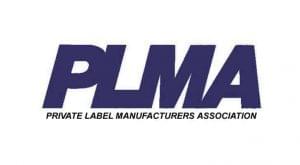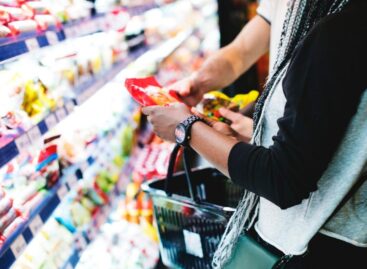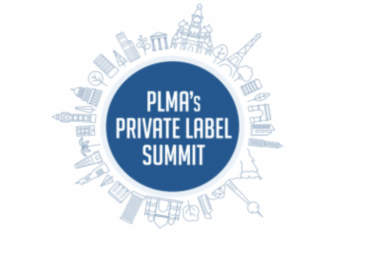Strong partnerships are more important than ever
 The pandemic is fundamentally changing the private label partnership. That’s the conclusion of a special industry panel of retailers and manufacturers conducted during PLMA’s virtual Annual Roundtable Conference. More than 150 industry executives in manufacturing and retailing registered from 36 countries.
The pandemic is fundamentally changing the private label partnership. That’s the conclusion of a special industry panel of retailers and manufacturers conducted during PLMA’s virtual Annual Roundtable Conference. More than 150 industry executives in manufacturing and retailing registered from 36 countries.
PLMA’s 2021 International Roundtable Conference, which took place 17-18 February 2021, was hosted online, and showed agility and success into the “new normal”.
Online Roundtable

Peggy Davies commented: “As we are moving into a new area where online platforms are an added value for B2B and future businesses, PLMA has proven to be agile and capable to embrace online opportunities to connect the private label industry worldwide.”
The conference examined key aspects of partnerships, including the supply chain, online retailing, cybersecurity and changing consumer behaviour. PLMA will examine the private label partnership today and in the future. How well is the partnership working? How is technology changing relationships between retail buyers and private label suppliers? How are they able to improve their ways of doing business?
The topic “Partnership now and in the future” was addressed at the opening as speakers offered insights into today’s challenges and new business opportunities. More than 150 industry executives in manufacturing and retailing registered from 36 countries from all continents, keen to learn about business solutions for the future.
High expectations

Maria Bogdanova, Senior Research Analyst at Euromonitor brought good news for private label. She said the research company expects that private label market share will continue to grow even in less consolidated retail markets, driven by the severe economic crisis and the fact that many consumers were forced to buy retailer brands during the hoarding period last year and found them better than expected.
According to Richard Cope, senior trends consultant for Mintel, 2.6 bn Generation Z shoppers present an enormous opportunity for retailers and private label manufacturers. Convenience, health and sustainability are the main drivers of Gen Z; they are more aware of social responsibility, a cleaner planet and their health. Gen Z consumers are most likely to seek and expect help from the retailers for a healthier lifestyle but are also very price conscious of price and value.
A retail case study by Sonae group’s Private Label Director Ana Cristina Amaral featured the Continente private label range created for Sonae’s market leading hypermarkets and convenience supermarkets stores in Portugal. The presentation emphasized the retailer’s quick responsiveness to market changes during the pandemic and also acknowledged the importance for sustainability as a core value in their three strategic pillars Quality, Price and Innovation. Amaral stated that the retail group is looking to commit to suppliers who share their dedication to these company values. The retailer works with 500 suppliers and one in three products sold in their stores is an own brand. The company believes its strength lies in the quality of its private label products.
Panel discussion
Retailers and manufacturers took part in a live panel discussion that featured Nils Clement, CEO and owner, Euro-Caps BV, Sanne Strandskov, Head of Marketing, Nopa Nordic, Jaap van Vreden, Sourcing and Procurement Director Lenta from Russia and Alexander Deopito, Senior Advisor, BCG and former Lidl Executive. Participants agreed on several key points.
Only long-term relationships will lead to innovation and quality. Manufacturers as well as retailers need each other in order to meet consumers’ demand and not in the least to ensure the existence of your own business “one can’t do without the other.”
Business based on price alone is not a base for a successful continuing relationship. As in a marriage, trust and sharing information—which are the key drivers for innovation and new product developments—can only be realized in a steady and lasting relationship in which both want to invest.
Now and tomorrow
 The second day of the PLMA Roundtable presented a series of workshops by IGD, devoted to examination of retailing today and in the future. Early sessions focussed on vulnerabilities and strengths in the retail supply chain, accelerated growth of e-commerce, and their impact on private label and packaging. Sustainability was again among topics addressed in one IGD session, emphasizing: “Sustainability is no longer an option but has become a must in the supply chain as customers shift channels and expectations evolve. Sustainability is the new normal.”
The second day of the PLMA Roundtable presented a series of workshops by IGD, devoted to examination of retailing today and in the future. Early sessions focussed on vulnerabilities and strengths in the retail supply chain, accelerated growth of e-commerce, and their impact on private label and packaging. Sustainability was again among topics addressed in one IGD session, emphasizing: “Sustainability is no longer an option but has become a must in the supply chain as customers shift channels and expectations evolve. Sustainability is the new normal.”
The programme concluded with an exclusive video interview with Paul Stainton a former executive of Aldi UK.
Related news
PLMA 2025: private labels draw on the power of surprise
🎧 Hallgasd a cikket: Lejátszás Szünet Folytatás Leállítás Nyelv: Auto…
Read more >Related news
40 secure jobs, sustainable solutions – new BURGER KING® in Csepel
🎧 Hallgasd a cikket: Lejátszás Szünet Folytatás Leállítás Nyelv: Auto…
Read more >Hétéves növekedési stratégiát jelentett be az Auchan
🎧 Hallgasd a cikket: Lejátszás Szünet Folytatás Leállítás Nyelv: Auto…
Read more >(HU) METRO Gasztro Fesztivál a SIRHA Budapesten – Élmény, inspiráció és valódi megoldások a HoReCa-szakmának
🎧 Hallgasd a cikket: Lejátszás Szünet Folytatás Leállítás Nyelv: Auto…
Read more >










